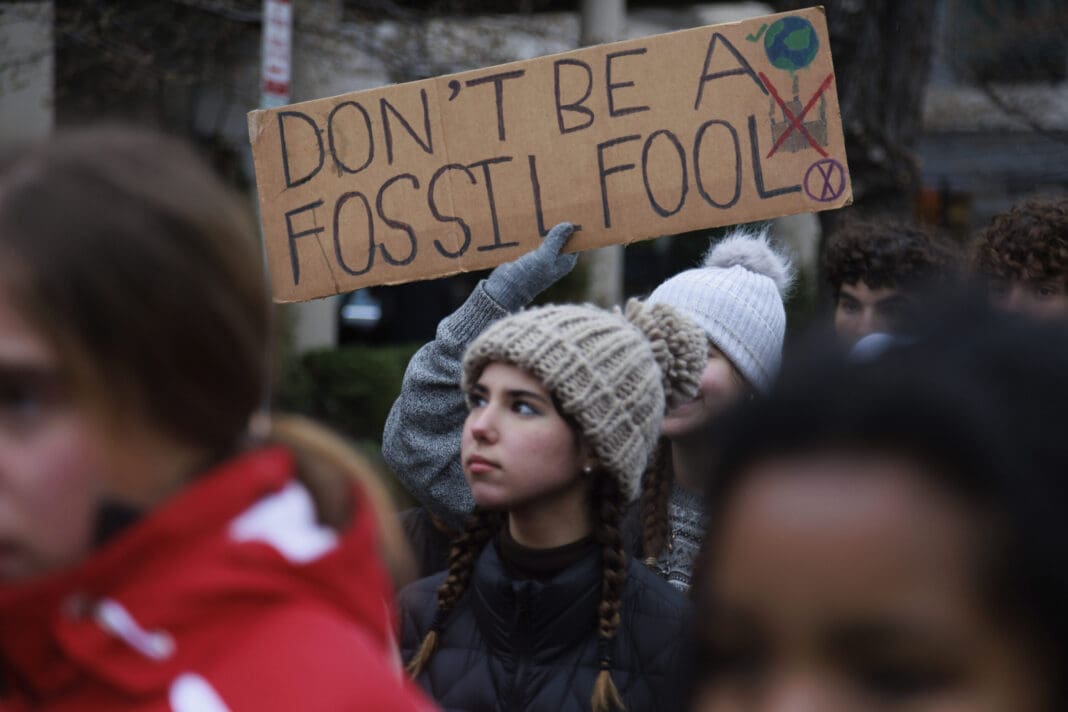The GOP's extreme bills: Undermining the climate and environment
Republicans in Congress want to repeal investments in climate change infrastructure, weaken environmental laws, and reprioritize fossil fuels.

Two months into the 118th Congress, Republican lawmakers have introduced dozens of bills aimed at undermining environmental protections; canceling spending on climate change infrastructure; and spurring increased oil, gas, and coal drilling.
The Republican majorities on the House Committees on Natural Resources and Energy and Commerce advanced an array of anti-environmental bills on March 9, including proposals to allow more fossil fuel drilling offshore and on public land and more fossil fuel pipelines. Republicans on both committees have publicly questioned climate science.
One of the bills, Natural Resources Committee Chair Bruce Westerman’s Transparency, Accountability, Permitting and Production of (TAPP) American Resources Act, would make it easier for energy companies to get permits for pipelines and for oil, gas and coal drilling.
Westerman (R-AR) has voted against protecting the environment 96% of the time over the course of his career, according to the League of Conservation Voters. In May 2015, he falsely claimed there was an ongoing debate about whether carbon pollution is the main force driving climate change. According to OpenSecrets, he has taken more than $430,000 in campaign donations from the oil and gas industry since 2014.
Other bills would prohibit any moratoriums on fracking, repeal a federal tax on natural gas, and overturn the Biden administration’s cancellation of permits for the dangerous Keystone XL tar sands oil pipeline.
An AP-NORC poll published in October 2022 found that 62% of American adults believe the federal government is doing too little to curb climate change.
While most of the bills introduced by the House Republicans are unlikely to become law with a Democratic-controlled Senate and President Joe Biden in the White House, Natural Resources Defense Council senior advocate Josh Axelrod told the American Independent Foundation they show that the party is not serious about protecting the climate: “These bills tell you what their priorities are, and also who they’re willing to listen to in terms of ideas. I mean, these bills are written by the most extreme members of the energy industry, it would appear, because they’re just so focused on boosting fossil fuels above everything.”
Energy and Commerce Committee Chair Cathy McMorris Rodgers touted those and other anti-environmental bills on March 9, saying, “Our goal today is to celebrate how our abundant energy resources have unleashed prosperity and invited people from across the globe to come to America to achieve their hopes and dreams. … We cannot afford to move backwards with a reckless command-and-control so-called climate agenda that forces people to pay more and go without reliable energy.”
McMorris Rodgers, a Republican from Washington state, has received about $950,000 in campaign cash from the oil and gas industry and voted to protect the environment just 5% of the time, according to the League of Conservation Voters.
In a Feb. 27 letter to McMorris Rodgers and others on her committee, 90 environmental groups, including Earthjustice, Greenpeace USA, the League of Conservation Voters, Natural Resources Defense Council, and Sierra Club, opposed seven of the GOP’s proposals:
This proposed legislation would exacerbate the climate crisis, perpetuate environmental injustices, and undermine US economic and national security by prolonging reliance on risky and volatile energy sources.
These bills would encourage new fossil fuel production and infrastructure, despite the scientific consensus that there is no room for investment in new fossil fuel production if we are to reach net zero by 2050, keeping the world on a 1.5°C compatible pathway. The bills would also undermine bedrock environmental laws, including the National Environmental Policy Act (NEPA) by short-circuiting permitting processes and limiting public input.
House Republicans plan to package bills advanced by the two committees as H.R. 1, the Lower Energy Costs Act. Majority Leader Steve Scalise said in a press release published on March 9 that he will bring the bill to the House floor for a vote in the last week of the month.
“With the introduction of the Lower Energy Costs Act, we will put a stop to the war on American energy, become energy independent again, and lower costs for families who are struggling,” Scalise (R-LA) said.
America Fitzpatrick, conservation program director at the League of Conservation Voters, told the American Independent Foundation that the designation of the bill as H.R. 1 — a number typically reserved for the top priority of the majority party — has huge symbolic significance and is an “indication of what a priority it is for Republicans to be advancing benefits to the oil and gas industry, in a time where they have record profits and price gouging Americans at the pump.”
“These proposals would really be locking us into just decades of dirty, volatile fossil fuels and really kind of perpetuate the environmental injustices that have already occurred, particularly to front-line and marginalized communities,” Fitzpatrick warned. “I think it’s clear these are giveaways to their oil and gas industry friends.”
A bill proposed by Tennessee Rep. Andrew Ogles and 22 other House Republicans would repeal the entire 2022 Inflation Reduction Act, which included a historic $369 billion investment in new energy and climate change infrastructure funding.
Axelrod said the GOP bills are “not a good start if avoiding the worst effects of climate change is the goal.”
“People want economic security, energy security, but prioritizing fossil fuels is not going to bring that, and it’s obviously going to make this overarching problem of climate change worse,” he observed. “And that is the problem that, you know, a vast majority of people recognize as something that needs to be taken seriously and addressed. And this is the opposite of serious.”
Already in the current Congress, the House has voted to repeal the Biden administration’s Waters of the United States regulations, which protect thousands of waterways under the Clean Water Act, and to pass the Strategic Production Response Act, which would require a plan for more fossil fuel drilling before any president could tap the Strategic Petroleum Reserve in the future for nonemergency purposes.
Meanwhile, Republicans in both chambers — with just one Democratic vote in the House and two Democratic votes in the Senate — backed repeal of a Labor Department regulation that permits retirement funds to take factors like climate change and social responsibility into account when assessing the long-term value of the businesses in which they invest. The White House has promised that Biden will veto the bill
Environmentalists see the Republican lawmakers’ efforts as dangerous to everyone.
“One way a colleague described it as, this is about taking us back to the 1920s. But if we think about the pollution in our cities in the ’70s, or the state of our water, our rivers at the time the Cuyahoga was on fire and led to the Clean Water Act, they’re rolling back,” Axelrod said. “There’s the potential for just this kind of massive reversion back to the era that gave birth to environmental laws, because the environment was such a mess at that time.”
Published with permission of The American Independent Foundation.
Recommended

President Biden visits Prince William park to talk solar, youth involvement on Earth Day
Virginia set to receive $156 million from U.S. Environmental Protection Agency program
By Charlie Paullin, Virginia Mercury - April 23, 2024
Texas governor and attorney general do little to curb state’s chemical plant crisis
Republicans Greg Abbott and Ken Paxton have taken thousands of dollars in donations from chemical companies and their affiliated PACs.
By Jesse Valentine - December 08, 2023
‘We’ve been waiting for this’: Union workers cheer Biden’s hydrogen hub plan
Federal funding for the hub is estimated to bring over 20,000 jobs to the Pennsylvania-New Jersey-Delaware area.
By Anna Gustafson - October 17, 2023









































































